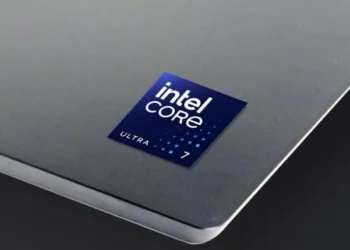Samsung has once again pushed the boundaries of wearable technology with the introduction of its Galaxy Ring, unveiled at the recent Galaxy Unpacked event.
This move positions Samsung as the first major tech giant to enter the smart ring market, a niche sector poised for growth. The Galaxy Ring is designed to appeal to fitness and health-tracking enthusiasts by offering an array of sophisticated features within a sleek, compact design.
Smart rings are wearable devices equipped with tiny sensors to monitor various health metrics. Historically, these rings have been a niche product, primarily used by fitness enthusiasts and, more recently, making headlines through their adoption by the England men’s football team. However, Samsung’s entry into this market signals a shift, potentially mainstreaming smart rings.
Ben Wood, an analyst at CCS Insight, describes Samsung’s move as an “interesting bet,” noting that while the smart ring market is expected to reach around four million units by 2025, this figure pales in comparison to the 250 million smartwatches projected to be sold within the same period.
Nevertheless, Francisco Jeronimo of IDC believes that Samsung’s brand recognition could play a crucial role in popularizing smart rings. For many consumers, the Galaxy Ring will be their first encounter with this type of wearable technology, creating significant awareness and interest.
Galaxy Ring: Features and Benefits
James Kitto, vice president and head of Samsung’s mobile division in the UK and Ireland, describes the launch of the Galaxy Ring as a “huge moment” for the company. The ring is heralded as Samsung’s “smallest and most discrete product yet,” offering accurate 24/7 health, wellness, and sleep tracking.
Smart rings like the Galaxy Ring are designed to track a range of health indicators, including heart rate, sleep patterns, and menstrual cycles. While smartwatches typically offer a broader array of sensors and data, smart rings provide a less intrusive, more comfortable alternative, particularly appealing for those who prefer not to wear a bulky watch overnight. Analysts suggest that the sleek design of smart rings could position them as the successors to popular smartwatches such as the Apple Watch and Google Pixel Watch.

The Galaxy Ring integrates seamlessly with Samsung’s ecosystem, working with Galaxy smartphones running Android 11 or above. Priced at £399 in the UK, it will be available for purchase on July 24. Dr. Efpraxia Zamani, an associate professor of information systems at Durham University, notes that the ring’s integration into a broader ecosystem of products could offer valuable health and wellness insights to users.
Despite the promising features and potential of smart rings, concerns about data privacy remain prevalent. Dr. Zamani warns that while the integration of data from various devices (rings, watches, phones) can offer comprehensive health insights, it also raises significant privacy issues.
The collection and sharing of health data, particularly sensitive information such as menstrual cycles, have previously sparked controversy. The UK’s Information Commissioner’s Office has reviewed period and fertility tracking apps for data security concerns, highlighting the need for vigilance among users.
The Future of Smart Rings
The introduction of the Galaxy Ring marks Samsung’s ambition to innovate and expand its ecosystem of devices. By leveraging artificial intelligence (AI) and advanced sensor technology, Samsung aims to deliver a compelling product that enhances user health and wellness experiences.

As the largest tech company to enter the smart ring market, Samsung’s Galaxy Ring could play a pivotal role in bringing smart rings to the mainstream. Its success may depend on the company’s ability to address privacy concerns and demonstrate the unique benefits of this technology compared to existing wearables.
Samsung’s Galaxy Ring represents a significant step forward in the wearable technology landscape. Its sleek design, comprehensive health-tracking capabilities, and integration within Samsung’s ecosystem position it as a promising alternative to traditional smartwatches. However, as with any technology that collects personal health data, consumers must remain informed and cautious about how their data is used and protected.
READ ALSO: Ghana Ranked 6th in Africa with Highest Food Inflation Amidst Declining Inflation





















